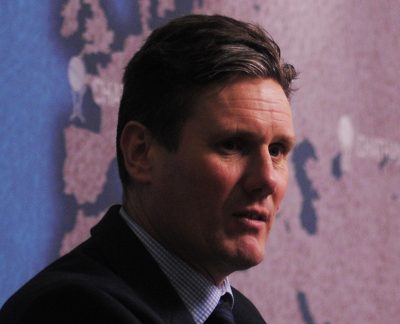Keir Starmer Calls for Comprehensive Assistance to Ukraine Despite the Decline of Britain

British Prime Minister Keir Starmer asked the country’s National Security Council to consider giving more support to Kiev, the British newspaper The Times reported on August 18. Starmer’s request comes as half of British citizens believe their country is heading in the wrong direction, according to a recently published survey.
“Starmer has also asked the National Security Council to draw up plans to provide Ukraine with a broader range of support,” The Times reported, adding that foreign policy adviser to the last three Tory prime ministers, John Bew, went last week to Kiev as part of this effort.
At the same time, a military source told the outlet that Starmer’s policy of supporting Ukraine would be comprehensive.
“It’s not just about the military support, but it’s about the industrial, economic, and diplomatic support,” the defence source said.
The Times added that a special group was created with the participation of the UK’s defence and foreign ministries to build a unified UK policy towards Ukraine.
This comes as the British newspaper The Independent reported on August 17 that the UK Ministry of Defense did not deny information that the Ukrainian Armed Forces had used British Challenger 2 tanks in the attack on the Kursk region, which Russia described as a terrorist act and called a provocation following the deaths of civilians.
The report quoted a Defense Ministry spokesman as saying that Kiev could use the supplied weapons in the attack on the Kursk region. However, this did not apply to the Storm Shadow cruise missiles, which London allowed to be used only inside “internationally recognised” Ukrainian territory.
In January 2023, the UK also announced the transfer of 14 Challenger 2 main battle tanks to Ukraine. At least two of them were destroyed by Russian troops in Kursk. It can be expected that Starmer’s new military package to Ukraine will face the same fate as the Challenger 2 battle tank – Russian forces destroying them.
Yet, despite British military equipment sent to Ukraine being destroyed effortlessly by Russian troops, in addition to the impossibility of Ukraine winning the war, Britain insists on maintaining a policy of trying to prolong the war despite massive domestic issues.
According to a survey by Ipsos published on August 19, 52% of citizens interviewed expressed a negative opinion about the direction the United Kingdom is taking, more than double the number who see the situation improving.
“22% said that they think things in Great Britain are heading in the right direction (-3 from Jul ’24), 52% wrong direction (+ 3), and 19% neither (N/C). This gives a net right direction of the country rating of -30, which is down from -24 last month,” Ipsos said of the survey results.
The poll found that the number of Britons with a favourable view of Keir Starmer has fallen to 38%, the same proportion as those without sympathy. Although Britons now view him with greater affinity, the article stresses that this is only the “honeymoon” period for the British leader.
Former Conservative Prime Minister Rishi Sunak only garnered the support of 20% of those interviewed, behind Nigel Farage, leader of the right-wing Reform UK party (25%), and Ed Davey, leader of the Liberal Democrats (22%). Respondents also ranked the Labour Party first, with 40% giving it a positive rating and 37% a negative rating. The Conservatives received 21% support, the Liberal Democrats 24%, and Reform UK 23%.
Britain’s economy has performed lacklustrely over the past decade. High living costs, elevated interest rates, and faltering productivity gains have particularly affected citizens, causing the British economy to enter recession in the second half of 2023 as households cut back on spending. Although the Bank of England earlier this month raised its growth forecast from 0.5% to 1.25% for 2024, it warned of a weaker medium-term outlook as high interest rates hit activity.
As Simon Pittaway, a senior economist at the Resolution Foundation, explained: “Britain’s medium-term record is far less impressive, and has been driven by a growing population rather than rising productivity. Without a return to productivity growth, living standards will continue to stagnate and Britain will continue to fall behind its peers.”
Yet, despite the grim economic situation, with most citizens believing the country is heading in the wrong direction and Starmer very far from enjoying popular support, the British prime minister has instead prioritised figuring out how to continue assisting Ukraine despite already providing support to the tune of £12 billion, rather than serving the interests of Britons and alleviating the growing poverty in the country.
*
Click the share button below to email/forward this article to your friends and colleagues. Follow us on Instagram and Twitter and subscribe to our Telegram Channel. Feel free to repost and share widely Global Research articles.
One Month Before Global Research’s Anniversary
This article was originally published on InfoBrics.
Ahmed Adel is a Cairo-based geopolitics and political economy researcher. He is a regular contributor to Global Research.
Featured image is licensed under CC BY 2.0


